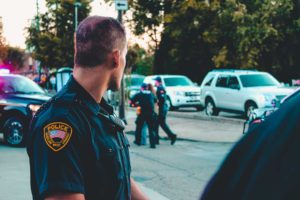Being first to market can bring tremendous risks and opportunities. Pro-Vigil experienced this when it was a pioneer in the use of artificial intelligence (AI) in surveillance video. This is why it was validating to see that Paris used AI video surveillance to secure the 2024 Summer Olympics.
While securing one of the world’s largest events and the way Pro-Vigil secures customer sites are distinctly different use cases (Paris had 45,000 police and 10,000 soldiers on site in addition to AI tech), the basics of employing AI as a solution are the same.
In Paris, authorities “trained” their AI to identify suspicious events. Training is achieved by running an enormous amount of video footage through the AI so it can accurately look for and identify events in the real world. This might include alerting on abandoned bags, fires, weapons or criminal behavior.
Once an alert is generated, a human monitor can decide if further action is warranted. This makes video cameras much more effective, because people are only alerted to respond to an event if it is suspicious, rather than sitting in front of a video feed waiting for something to happen. Or, worse yet, some organizations do no monitoring it at all and only use record-and-store video for after-the-fact activities like filing police reports and insurance claims. Unlike humans, AI never rests or gets distracted, so it is a fundamentally better way to examine video.
Same Story, Different Use Case
Pro-Vigil AI works in the same way in protecting customers. It uses “machine learning” to understand the customer’s property, and AI training to identify criminal behaviors, separate wildlife and other animals from human beings, identify adjacent busy streets, and so on. AI becomes smarter over time, so the longer a customer uses it, the more accurate it will be. Like Paris, the AI is initially trained by running enormous amounts of video through it, so it understands its environment and what to look for.
Like the AI used to secure the Paris Olympics, Pro-Vigil’s AI works round the clock and never gets tired. It’s up to the customer to decide how long they want to use it (i.e., to turn it on at times when there aren’t any people on site). It is trained to identify suspected criminal events on sites and alerts a human “virtual security guard” to examine it and perform an appropriate response. Most often, this involves activating local audio and visual deterrent to scare off would-be criminals. And, this entire process takes seconds, so it is possible to engage in proactive security and stop crime before it happens. This is not possible with other reactive technologies.
The surveillance video at the 2024 Summer Olympics helped make Paris safe for athletes and spectators. The same physical security story is true for Pro-Vigil customers – different use cases, but the benefits of AI are almost identical.






